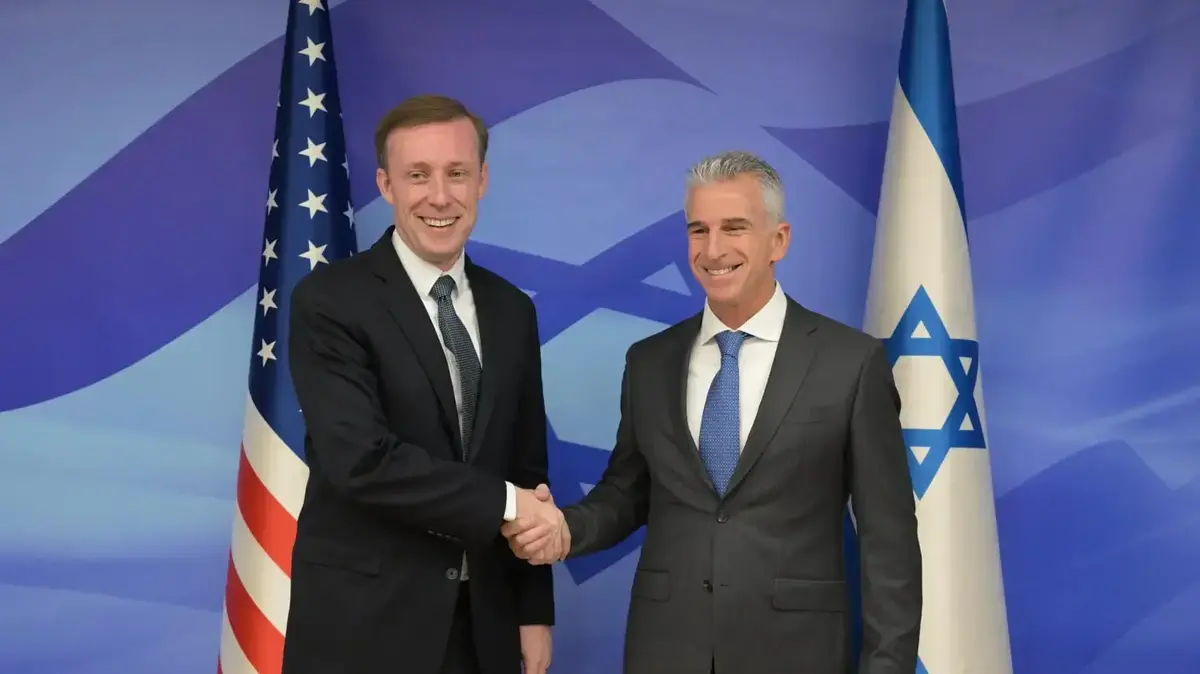"I'm going to make the statue."
The spokesman of one of the parties that habitually supports the Government in Parliament told another of the members of the Executive that this was going to be his disposition in the face of the reform of the law of the only if it is yes that confronts the PSOE with its
partner
of coalition, United We Can.
He did so after receiving a call from the Minister of Finance and Deputy Secretary General of the PSOE, María Jesús Montero, in which she asked for her support for the proposal to reform the Law on Sexual Freedom.
He's not the only one who thinks that way.
"This brown has been generated by them, the two coalition parties, and they have to resolve it for us," several spokesmen for the allied formations insisted to this newspaper.
EL PAÍS has contacted the heads of the parliamentary groups of the progressive block that has supported the Government in this legislature.
All of them agree that it is necessary to correct the corroborated rulings in the law and the problem of social alarm generated by the more than 400 reductions in sentences agreed by the judges.
But none of the spokespersons clarifies how to do it.
PNV and PDeCAT advance their "very favorable disposition" towards the PSOE initiative.
ERC, EH Bildu and Más País-Compromís advocate the agreement, but without leaving behind United We Can and the Ministry of Equality.
These are days of cross calls, conversations with various parties and talks full of restlessness and discomfort between the government's partners in Congress.
The legislature seemed headed towards its final stretch, with a long run-up to the campaign and with some political gains that the Executive intended to exploit.
That was the plan when the processing of several symbolic and allegedly conflicting laws was accelerated in December, with which it was intended to avoid internal discussions during the last months of the mandate.
The third State Budget had just been approved in due time and form, without excessive pitfalls.
Among the more than 190 projects and legislative decrees promoted during the legislature, the Trans Law
came forward
, euthanasia, labor reform, bank taxes, the energy sector and large fortunes, the new legislation on Democratic Memory, Human Trafficking, Equal Treatment, the minimum vital income or the revaluation of pensions.
Some relevant commitments remain to be fulfilled, such as the in-depth reform of the so-called gag law and the housing law, but what no one expected was this serious political clash on account of the reform of the law of the only yes is yes
.
The star project of the Ministry of Equality of Irene Montero was approved by the Council of Ministers on July 6, 2021, it took 14 months to overcome difficult parliamentary procedures and was validated in plenary session on August 25 with 205 votes in favor, 141 in against (84 from the PP, 52 from Vox, one from the PNV and four from the mixed group) and three abstentions (two from the CUP and one from the Regionalist Party of Cantabria).
It entered into force on October 7.
Within a few weeks, some courts began reviewing sentences downward as a result of the new law.
This circumstance triggered social alarm and a political conflict that has yet to be resolved that is testing the Executive's seams in the middle of the electoral campaign.
Since the president, Pedro Sánchez, verified last weekend that an agreement between the Ministries of Equality and Justice for a legal reform that increases some penalties was impossible, the PSOE chose to go its own way and promote its own proposal without United We Can.
His idea was to force an agreement to approve the reform in Congress by attracting support of any sign.
"The important thing is no longer with whom but what," María Jesús Montero came to declare in an interview.
The PSOE only has 120 deputies and if UP stands out (34 minutes) and the PP (89) and Vox (52) vote against, the proposal would decline.
Two socialist government officials minimize the consequences of moving forward with the reform without United We Can:
Law of yes is yes
”.
The PSOE, which at first had ruled out negotiating with the PP, has decided not to close that door.
The socialist negotiators, María Jesús Montero and the Minister of the Presidency, Félix Bolaños, have begun to call the spokespersons of various formations in Congress.
United We Can, for its part, did the same, but in the opposite direction, to capture votes against the socialist reform.
In the contacts already made by Montero and Bolaños, the PSOE has verified that its usual partners are in favor of correcting the law, raising the reduced sentences that have caused "social alarm."
But several of the allied groups also reiterate the slogan issued by Podemos and Equality to approve the reform "without touching consent."
The socialist negotiators assure that the initiative does not modify it.
But most of the allies do not trust the promises of the PSOE or the position of United We Can.
One of those spokespersons also warned María Jesús Montero in the telephone conversation: “Talk among yourselves, agree and give us a solution, because if you come to Congress to get this reform with the support of the PP you will put me against a rock and a hard place ”.
This is what almost all those responsible consulted transmit in private.
These are the responses provided by the spokespersons for the investiture partners of the Government.
The PNV, in favor
The parliamentary spokesman for the PNV (five seats), Aitor Esteban, understands that the socialist initiative "could serve" to better delimit the ranges of sentences and thus "limit" the margin of discretion of judges when applying the law.
For the experts that the PNV has consulted, the PSOE proposal "maintains the consent and the single criminal type" of the aggression.
Esteban maintains that once the "error" and the "concern" that this fact has generated in society has been verified, it is now necessary to "give an answer" and that proposition can serve as a "landing strip."
And he adds: "We do not understand the stubbornness of Minister Irene Montero in not recognizing the error of not putting a transitional provision in the law."
PDeCAT: willing and fast.
Ferran Bel, the spokesman for the PDeCAT (four seats), responds: “We are willing to support this initiative, although we are just studying and evaluating it, and we are also waiting to speak with the Socialist Group.
We hope that if it is necessary to make modifications to the
law of the only yes is yes,
they will be done as quickly as possible”.
ERC: less noise and "without going back to probationary hell".
Gabriel Rufián, the ERC spokesman (13 seats), indicates: “The main problem is media and judicial.
Having said this, we will do our best to perfect a law that, like all laws, can be perfected without promoting the noise that already exists around it, actively listening to the entire Government, which is the one who must solve it, and without joining the campaign that is against the Ministry of Equality or keeping silent as others can do out of fear or electoral interest, or evidently supporting any change that
de facto
make women go back to the probationary hell of the previous legislature”.
The Republican leader specifies that "consent is untouchable for ERC" and expresses his interest in also discussing another fundamental issue: "A law, however perfect it may be, does not change reality.
The profound change in this will not be brought by reforming this law or not, it will be brought by a social conscience that costs much more”.
EH Bildu: Always agree with Equality.
Mertxe Aizpurua, from EH Bildu (five seats), specifies: "We are willing to surgically tweak the law if necessary, as long as its core (consent) remains intact and is done by mutual agreement with the Ministry of Equality and not behind their backs.
In this case, it seems that this has not been the case”.
The Abertzale leader understands that if in order for "consent to be effective and the courts believe women victims, signs of violence or intimidation have to be shown, it will be returning to the previous model."
Más País: "The responsible government must bring an agreement".
Íñigo Errejón, from Más País-Compromís (three seats), points out about the possible solution to this conflict: “It is not up to the partners, we are part of the solution if they first reach an agreement.
The Government must be responsible and bring an agreement to Congress.
The Government knows that, if it reaches consensus within it, it can count on its partners to get out of the labyrinth they have gotten into, which is not good for anyone, especially the Government itself”.
Subscribe to continue reading
Read without limits
Keep reading
I'm already a subscriber









